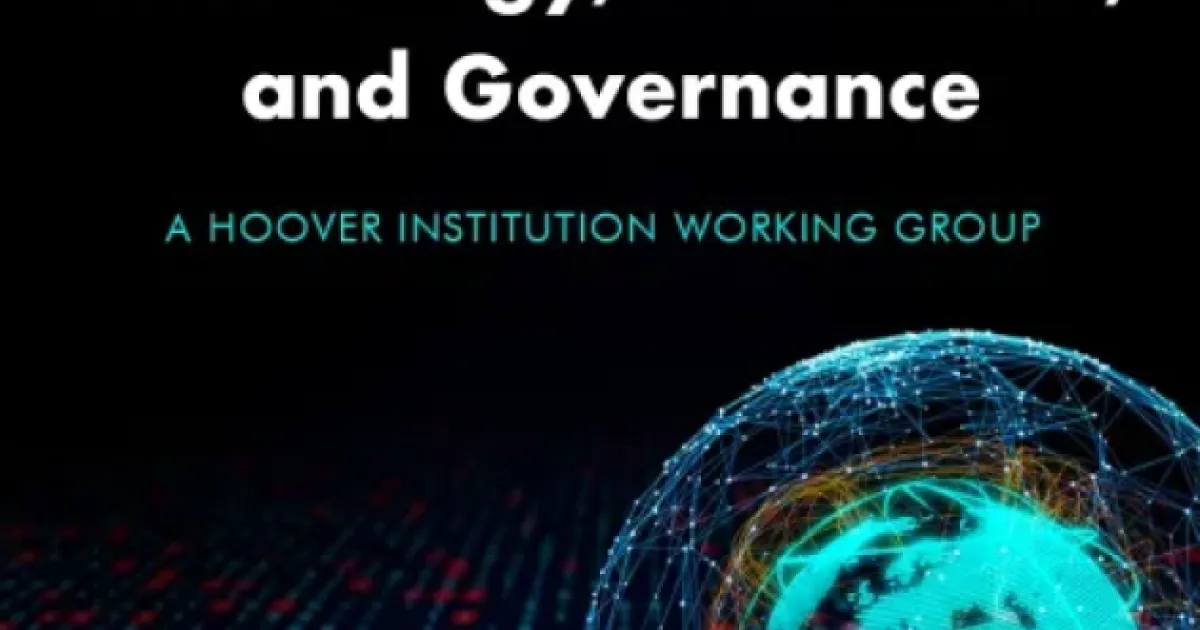A weekly digest of the latest news and research related to the work of the Technology, Economics, and Governance Working Group. Topics covered in the digest include cybersecurity, domestic regulation, innovation, international competition, social media disinformation, and the California exodus.
We’re back after spring break! This week’s roundup reviews Russian and North Korean missile claims, Putin’s misguided tactics in Ukraine and possible cyber threats to the US, and recommendations for countering Chinese gray zone activities. Additionally, antitrust legislation continues moving forward in the EU and the US, DARPA looks to AI to help triage casualties on the battlefield, Toronto rivals US tech hub contenders, and analysts assess DoD’s progress countering extremism from within.
Industrial Policy, International Competition, and Cooperation
Putin Doesn’t Realize How Much Warfare Has Changed | The Atlantic
Moscow’s reliance on tanks and heavy guns during its invasion of Ukraine represents a failure to learn from history. Outdated tactics have left armored units vulnerable and poor planning alongside institutional corruption has undermined Russian forces’ logistics support and communications systems. If morale continues to drop among Russian units, a military collapse could force Putin into an unexpected withdrawal.
Russia claims to use a hypersonic missile in attack on arms depot in Ukraine. | The New York Times
Russia recently reported that it launched a hypersonic missile in an attack on a Ukrainian ammunition depot. Although Moscow’s claim was not verified by external sources, the launch would represent the first combat use of a hypersonic weapon—a missile capable of flying faster than Mach 5. The United States, China, and Russia have been competing to develop hypersonic weapons for over a decade. The speed of the missiles and their capacity to deliver nuclear warheads is of particular concern to the Pentagon, which is tracking missiles fired by Russian forces in Ukraine.
Seoul: N. Korea fired old ICBM, not new big one, last week | The Hill
South Korean officials denied reports by North Korean state media that Pyongyang tested a Hwasong-17 missile last Thursday, claiming that the missile was actually the older Hwasong-15, first launched in 2017. Although the missile flew higher and longer than any previous North Korean test, Seoul says that it may have carried a lighter payload to deceive observers.
A New Framework for Understanding and Countering China's Gray Zone Tactics | RAND Corporation
Beijing has embraced gray zone tactics—coercive actions that fall below the threshold of war—as a key means of power projection in the Indo-Pacific. Researchers from the RAND Corporation developed a policy framework for American decision makers to respond to China’s aggression. Their recommendations emphasize the importance of opening gray zone scenario discussions with key allies, identifying China’s most-problematic tactics, and developing operational gray zone response plans that cover more-escalatory scenarios.
Domestic Regulation
U.S. slow to respond to EU’s landmark tech regulation | Politico
While the Biden administration has remained silent on the Digital Markets Act—a new European legal framework of robust consumer reforms that may undermine the dominance of American tech giants—Washington has been eager to praise a recent trans-Atlantic data agreement with Brussels that will facilitate smoother data flows between the US and the EU.
Antitrust Bill Targeting Amazon, Google, Apple Gets Support From DOJ | The Wall Street Journal
The Biden administration’s first clear endorsement of the American Innovation and Choice Online Act, a bipartisan initiative intended to prohibit large tech firms from favoring their own services, came on Monday after the Senate Judiciary Committee received a letter from the Justice Department expressing support for the bill. Proponents of the Act argue that the legislation will correct anti-competitive practices while fostering a friendlier business environment for smaller tech firms. Others claim that the bill unfairly targets a few companies and will make it more difficult for tech giants to offer popular services.
Innovation
The military wants AI to replace human decision-making in battle | The Washington Post
The Defense Advanced Research Projects Agency, the long range innovation arm of the US military, is working on a program called “In the Moment” that would allow soldiers to outsource triage decision-making on the battlefield to artificial intelligence. The project was launched earlier this month, and the agency hopes to eventually eliminate dangerous human biases. However, some ethicists have questioned the morality of allowing machines to take the lead in life-or-death medical decisions.
Cyber
"It's coming": President Biden warns of "evolving" Russian cyber threat to U.S. | CBS News
President Biden warned the Business Roundtable last Monday that intelligence suggests that Moscow is considering cyberattacks on American critical infrastructure. Officials stated that they have not identified any specific targets or threats, but have observed Russian cyber actors partake in preparatory activities consistent with efforts to probe for vulnerabilities among US companies. The Biden administration has responded by expanding cyber outreach and pressuring firms to tighten their security.
California
Toronto, the quietly booming tech town | The Seattle Times
Toronto has quietly emerged as a major tech hub that dwarfs Silicon Valley rivals like Austin and Miami. The city’s tech workforce has expanded faster than its American peers, and its population is second only to New York and the Bay Area. Heavy investment by government agencies and prominent entrepreneurs, access to a large pool of university talent, and Canada’s liberal immigration policies have all facilitated Toronto’s rapid growth.
Freedom of Speech, Domestic Democracy, and Extremism
The Military Is Making Progress in Its Counter-Extremism Efforts, but Gaps Remain | Lawfare
While the Defense Department’s December 2021 Report on Countering Extremist Activity revealed several new policies designed to address growing concerns about extremism in the military, the Pentagon has room to improve. Current protocols neglect prevention, as most policies initiate action after extremist activities take place. The DoD should work to integrate media literacy and civic education into training curricula as preventive measures and developing a list of banned groups (which is not a current DoD practice) could reduce ambiguity about extremist behavior. Greater outreach efforts to veterans, reservists, and National Guard components are also necessary.























